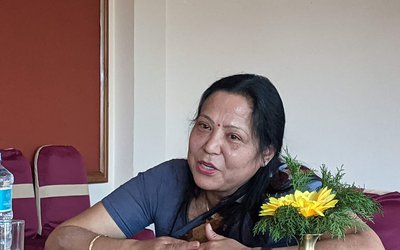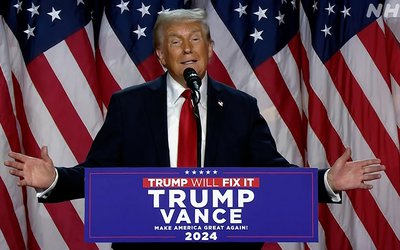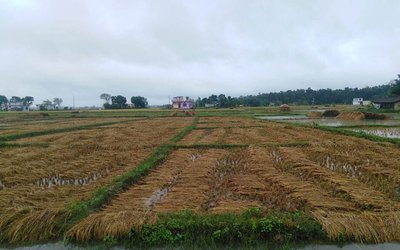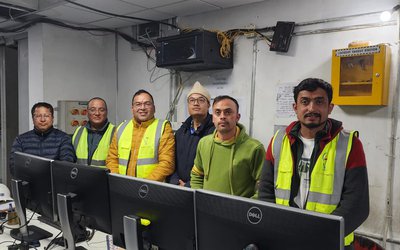A senior leader of India’s leading coalition partner Congress, DR. KARAN SINGH had been involved in New Delhi’s Nepal-policy in the past. During the final days of monarchy, he was sent as Indian Prime Minister Manmohan Singh’s special envoy to hold a secret meeting with the then King Gyanendra. The son of Kashmir’s Maharaja Hari Singh who had signed the Instrument of Accession to India in 1947, Singh was married to Yasho Rajya Lakshmi from Nepal. He spoke to NAVIN SINGH KHADKA of the BBC Nepali service as Indian Foreign Minister SM Krishna was wrapping up his Nepal-visit last week. Excerpts of the interview:
What is India’s main concern in Nepal at this point?
Our real concern was the peace process and the constitution but that has been somewhat delayed, I am not quite sure what is the position today but it is in our interest that there should be a stable government, there should be a constitution there and the peace process should continue to move towards its logical culmination. And also that, there have been some rather disturbing reports that Indian businessmen were being targeted or being squeezed out, I am not quite sure how true those are, but that sort of thing will not be acceptable and we will be very concerned if that happens.
By mentioning that, you might be referring to the Maoists. But people say that the Maoists were brought into the mainstream with the help of India and now there is this tension between the two sides, which means New Delhi’s Nepal policy has failed and it needs a review.
Well, I would not like to comment on that. I was also involved as you know I had go up one day and talked to [the then] King Gyanendra, just before he handed power to the seven parties. But certainly it needs a review. And I think we have to very carefully reconsider the whole situation and decide what it is that is going to be in our interest and in the interest of the people of Nepal. We have by the way a large number of Indian army ex-servicemen in Nepal, about 200,000. So you see the relationship is so close that any kind of hostility or tension is going to be counter-productive.
You mentioned your meeting with former King Gyanendra, people are still curious. What did you tell him then?
That I am not inclined to tell you on [the] BBC (laughs). I know you are a bright young man but you won’t get any secret information from me.
But then what is also said is those were the days when India was the sole player in Nepal and you had direct access to the then king like that. But now, in this changed scenario, there are so many players – the western powers, Chinese influences and so on. So don’t you think things have gone worse?
Well I don’t know, you know when you move into a democracy from any kind of absolute regime whether it’s a dictatorship or a monarchy, there is always certain amount of turmoil. You can see what is happening in West Asia, for example. The transition to democracy is never a smooth one. But yes, you are quite right there are a number of problems. But I am sure you are going to tackle them and address them satisfactorily and I am hoping that the foreign minister’s visit there (Indian Foreign Minister SM Krishna’s visit to Nepal) will lead to a solution of many of the problems.
So does Krishna’s visit come as a review if India’s Nepal-policy?
Well, the review is a constant process you know. Foreign policy is not a one time thing, it’s under constant review depending on the circumstances on the ground. And so, I presume that it is being reviewed regularly and updated and upgraded. And perhaps this latest visit (of SM Krishna) is the latest element in that review.
You pointed out the latest visit. But what is often alleged by analysts even in India itself is that Nepal is left for bureaucrats to handle and politicians are busy with something else and therefore you have this mess. Do you agree?
Is that so? No, I would rather not comment on that.
What do you say about allegations that China is also becoming active in Nepal now?
The interview is about Nepal and not about China. But I must reiterate that our ties with Nepal is indissoluble. Anybody who tries to break it or who tries to muddy the water ultimately will not succeed.
Former Indian Foreign Minister Pranab Mukharjee was on-the-record that India brought Maoists into the main fold in Nepal. And so, people argue: now that you have a problem with the force that you once claimed to have brought to the mainstream, why should Nepalese suffer?
Yeah, you must ask Pranab Mukharjee that (laughs).
- SWISS SUPPORT: Construction Of A Trekking Trail In Koshi
- Dec 19, 2024
- PM OLI'S VISIT TO CHINA: BRI Agreement
- Dec 16, 2024
- RASUWAGADHI AND SANJEN: Begin Generation
- Dec 03, 2024
- NEPAL, INDIA ELECTRICITY TRADE Nepal's Advantage
- Dec 02, 2024
- PM Oli'S VISIT TO CHINA: Nepal's Dilemma
- Dec 01, 2024
















